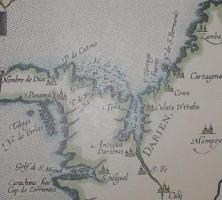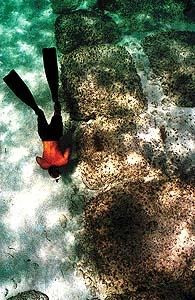Copy Link
Add to Bookmark
Report
Computer Undergroud Digest Vol. 07 Issue 54

(Cu Digest Homepage: http://www.soci.niu.edu/~cudigest
Computer underground Digest Wed Jun 28, 1995 Volume 7 : Issue 54
ISSN 1004-042X
Editors: Jim Thomas and Gordon Meyer (TK0JUT2@MVS.CSO.NIU.EDU
Archivist: Brendan Kehoe
Shadow Master: Stanton McCandlish
Field Agent Extraordinaire: David Smith
Shadow-Archivists: Dan Carosone / Paul Southworth
Ralph Sims / Jyrki Kuoppala
Ian Dickinson
la Triviata: Which wine goes best with Unix?
CONTENTS, #7.54 (Wed, Jun 28, 1995)
File 1--More information about the Wish Book BBS(fwd)
File 2--Against Intellectual Property..
File 3-- 3,000 AOL Computer Users to be Raided
File 4--Obscenity in Cyberspace
File 5--Cato Study Release: Exon bill would "lobotomize the Internet"
File 6--Cu Digest Header Info (unchanged since 19 Apr, 1995)
CuD ADMINISTRATIVE, EDITORIAL, AND SUBSCRIPTION INFORMATION APPEARS IN
THE CONCLUDING FILE AT THE END OF EACH ISSUE.
---------------------------------------------------------------------
Date: Wed, 28 Jun 1995 08:10:00 -0500 (CDT)
From: David Smith <bladex@BGA.COM>
Subject: File 1--More information about the Wish Book BBS(fwd)
---------- Forwarded message ----------
From--lorne.shantz@twb.com@INTERNET at #EMAIL
Organization: The Wish Book BBS (602)258-7113/Phoenix, Az.
Dear friends,
This letter is to inform you of the ongoing saga of the State of
Arizona against Lorne Shantz of The Wish Book BBS. PLEASE, repost this
to anyone and everyone that you want to. Don't bother to ask
permission, just do it! For moderators: if you see this message and it
isn't in your conference and you want it there, please copy it over to
that conference!
As some of you may have already heard... There was a hearing to
dismiss or remand the case on the 22nd June. The judge ordered the
case remanded back to the Grand Jury. This means the county attornies
office will have to start over! They will be able to use the same
evidence but they have to go back to the grand jury.
If any of you are unfamiliar with the AOP, as SYSOP's, should maybe
become aware of what they are and who they represent. The Association
of On-line proffesionals defends SYSOPS's. That is their claim to
fame. From the capital, to local issues. Many don't know this. What
follows is an article that Mr. Dave McClure is releasing in the AOP
Newsletter. He can be reached at dave.mcclure@aop.org
At the end of his news article is the defense fund info for any of you
that may have missed it and would like to help us defend Lorne Shantz
against this mess. The legal bills are staggering not to mention he is
fired and hasn't been able to get a job. He NEEDS your help badly!
=========================================================
=By Dave McClure
dave.mcclure@aop.org
IN OLD ARIZONA
Lorne Shantz has spent the last 15 years as an Arizona State Trooper.
He's a decent, law-abiding citizen who worked hard to build a popular,
well run and legal BBS. What they're doing to him in Arizona is a crime.
In Maricopa County, prosecutors are trying to convict Shantz on a
variety of obscenity charges that could send him to jail for life.
The outcome of the trial may be a moot point -- they've already ruined
him financially, seized his system and gotten him fired from his job as
an officer of the Arizona Department of Public Safety and pilot for
three former governors. His reputation has been smeared almost beyond
repair.
Two years ago, the county opened the investigation based on the
allegations made by a snitch. The allegations were that The Wish Book
BBS Shantz has operated sicne 1988, had illegal copies of Microsoft
software.
The Investigation did turn up a copy of the MS mouse driver. Microsoft
rightly requested that Shantz cease and desist, and he apologized for
the oversight and removed the offending file.
It should have ended there. But in a county with a prosecutor up for
reelection, the case has taken a nasty turn. Based on other allegations,
investigators went looking for obscene pictures. They didn't find any.
Shantz had tough policies about uploads, restricted access by minors and
generally did everything required to run a clean system.
Not deterred by this lack of evidence, they raided the premises last
November and seized the BBS. After carefully weeding through the 9
gigabytes or so of files, they still found nothing.
Except some CD-ROMs. The Wish Book Had 20 of them online, the usual
blend of shareware and adult pictures that can be purchased anywhere
through leading computer magazines.
The prosecutor found images on the CD-ROM that Shantz didn't even know
were there. Beastiality files, defection files and a few of unidentified
females whose thigh might belong to a person under the age of 18. Not
many files, a few out of thousands.
Most sysops run such CD-ROMS on their BBS systems. They do so in the
belief that because CDs are openly sold everywhere, they offer some
protection against undesirable or obscene content. Not so, in this case.
What's disturbing about this case is that is isn't about obscenity or a
major offense -- even the prosecutor's office characterizes the case as
a minor point of law. It's about pride and reelection.
They tried to bust the BBS for copyright infringement, and didn't have a
case. They looked for obscenity on the BBS and came up dry. But after
spending two years and untold thousands of taxpayers dollars, they can't
afford to let it drop -- if they don't slam him with a major felony,
someone is bound to ask why they are wasting dollars to prosecute this
case instead of real crimes.
Lorne Shantz isnt' a pornographer. He's not a panderer of obscenity, or
kiddie-porn, or illegal software. He's a clean SysOp and a good cop
whose reputation has been mangled by a snitch looking for a reduced
sentence and a prosecutor too proud to do the right thing.
Is the prosecutor's pride -- Or reelection -- worth a man's reputation?
We don't think so. That's why AOP has decided to step into the case in
support of Lorne Shantz.
=============================================================
End of article
The defense fund info for any wishing to help Lorne Shantz out:
The defense fund is called the "Lorne Shantz Defense Fund." The address
is c/o Jeff Adcock, P.O. Box 273, Litchfield Park, Az. 85340, or call
Jeff Adcock (brother-in-law) at 602-877-9638. We accept money, checks,
credit cards, anything. Please, we need your help and we need your
support. (if you choose to use a credit card, you will need to go
through the credit card door at the BBS numbers listed below)
602-258-7113
602-252-4472
------------------------------
Date: 27 Jun 1995 16:07:17 +1000
From: "Brian Martin" <Brian_Martin@UOW.EDU.AU>
Subject: File 2--Against Intellectual Property..
From--S. Keith Graham
Date--Thu, Jun 22, 1995 8:47
============================================================
Overall, your article appears to be fairly well researched
and persuasive, but a couple of points:
While trademarks can be abused, they are much narrower than any of the
other forms of intellectual property. Much like the "Right of
Attribution", trademarks provide the consumer some assurance of the
quality and contents of a product. (And trademarks are fundamental
in markets well afield of the "information marketplace.")
Your essay didn't mention trademarks (outside of the initial list of
types of property), so I don't have any idea where you stand on
trademarks. (For whatever its worth, I've heard that
the Former Soviet Union considers establishing a system of trademark
to be a very high priority, because without it, competition in any
marketplace is impossible.) I believe that, without a right of
attribution/trademark, a marketplace simply can not function.
Second, in the environment you suggest, I don't see how a movie like
_Jurrasic_Park_ could ever get made. The large works, that require
tens of millions of dollars to be "fronted", would not have a visible
mechanism to reclaim their investment. (Well, it is possible that
the theaters could be owned by the film producers, and every effort made
by the film producers to prevent illicit copies being made; but this is
applying physical copy protection which is counter to your proposals.)
So how do you propose the money travel from those interested in seeing
such a movie into the hands of those who (might) be making that movie
in the future? Or how do you propose that the investors will regain
their investments (plus a profit for risk) after release?
(Similiar arguements can be made for other large, tightly coordinated
efforts such as large, integrated software projects.)
(A copyright of a few years would however, cover the initial release,
home video sales, cable release, and public network release which comprises
the majority of the profit related to your average movie. This might be
a much better situation than the current "life+50". And it is more than
sufficient for the lifetime of most software products.)
Third, without all information producers being employees of the public,
I don't see a method whereby money can get from the consumers to the
producers. (And I believe that making information producers employees
of the government is not in anyone's best interests.)
Last, in a free economy, if "raw data" is equally available, non-entertainment
data will be provided as close to "cost" (including labor of the preparers)
as possible. If there is a market for hyper-text versions of the
U.S. Code of Laws, several companies will each lower their prices until
the net result is "at cost" information. This does assume, however,
that the raw data is equally available. (And copyright does give them
the ability to protect their investment in converting the raw data
into useful information. Without that protection, the copier has a
much lower cost than the producer, and the producer has no source of income
since he can't eliminate that portion of his costs.) Again, since in
most fields, "raw data" is quickly out of date, a short term copyright
is sufficient.
Last, the compensation of entertainers (and other works) should
be representative of the *quality* of their work, just as in other
fields. If the market judges an author's work of much higher quality,
I have no objection to their being compensated at a much higher rate
than others. (Similiary, I will pay more for a higher quality car than
for a car from a company that is known for reliability problems.)
And in a world with limited resources, I don't see any kind of
serious social changes like the ones you suggest. All of your
arguments based on such social changes are, unfortionately,
overcome by that fact. However, shortening the copyright term
(or otherwise altering the copyright law to encourage more free-flowing
information) can be successfully argued from the current social model.
If you choose to go for another round of revisions, I'd strongly
suggest an approach based on the current economic model (and suggestions
for changes that may perhaps influence that model) rather than
looking for an "alternative history" of what might have been.
Keith Graham
vapspcx@cad.gatech.edu
============================================================
********************
Reply by Brian Martin
Keith Graham raises some intriguing and challenging points concerning
intellectual property.
* He is quite correct that I concentrated on copyright and patents and
not on trademarks, which are not such a source of exploitation. Just a
few comments. Trademarks can used in ways that have little to do with
quality assurance. For example, when the holders of the trademarks in
the Olympic rings or Jurassic Park license their symbols for use with
toys or hamburger chains, it says very little about quality. It's also
amusing to see green groups scrambling to register "Green Party", as
if holding the legal right to a word certifies a group's greenness.
Peter Drahos made the point to me that trademarks are valuable to
consumers when they indicate the origin of goods, but that trafficking
in trademarks -- selling and buying them -- should be opposed.
A movie like Jurassic Park be made without copyright laws? This is a
tricky question since it assumes the value of the movie Jurassic Park
and ignores the other movies that might be produced if such a large
slab of money did not go to a single project. In other words, it
ignores the opportunity cost of Jurassic Park.
Another point is that Jurassic Park is more than a movie -- it is a
marketing package. It is planned as a combined marketing operation
involving movie, toys, T-shirts and all sorts of commercial spinoffs.
It is by no means obvious that such an enterprise, which is built on
intellectual property, is an efficient or wise way to allocate
economic resources.
There are other possible ways to imagine large investments in movie
and other projects. For example, viewers of a previous feature or a
short might be asked to contribute a small amount toward sponsoring a
certain director or project.
However, the most important point is that intellectual property
benefits large corporations and large projects at the expense of
others. Without intellectual property, there would be an enormous
diversification of production, with many local and indigenous
enterprises becoming viable. The difficulty is that it's only possible
to see what is produced now, not what is *not* available now due to
intellectual property.
* Today, very few information producers make a living directly from
their personal ownership of information. Almost all intellectual
property is owned by large organisations (government or corporate).
For those few writers or inventors who rely on royalties, it is
possible to imagine a number of alternative economic models to provide
a livelihood. One possibility is a guaranteed annual income (provided
by government or by a local community). Another is for writers to
rely more on journalism, which happened in the 1800s when there was no
copyright in the US. Another is for authors to obtain payments based
on the number of copies of their books in libraries, as currently
operates in a number of countries; this "public lending right" scheme
could also operate without copyright. Another possibility is for
writers and inventors to request "subscriptions" to support work on
their next project. This is the way many "alternative" journals
operate today, depending as much on contributions as on subscriptions.
* Today, some entertainers actually like pirate tapes of their
concerts to be made and distributed. This increases their visibility,
increases sales of future releases and increases audiences at
concerts.
* I agree that shortening copyright terms makes a lot of sense. For
movies most of the money comes in during the first few weeks or
months. For television and radio, post-broadcast sales usually are a
minor consideration. So why have copyright terms been increasing? The
most plausible explanation is that the institution of intellectual
property is being used by vested interests against the common good. If
rational reform was a reasonable prospect, then I probably wouldn't
bother making a case against intellectual property. It is because
intellectual property is so readily used to exploit those who can
least afford it -- especially third world peoples -- that think that
it would be better to abolish intellectual property altogether.
* Peter Drahos, a lawyer who has studied the politics of intellectual
property, things the term "intellectual property" is itself
misleading. He thinks "monopoly privilege in ideas" is a better
description of what's involved. It's by no means obvious that economic
efficiency is best promoted by a legally guaranteed right of monopoly
use over years or decades.
* My view is that extension of property rights to information is
neither inevitable nor necessarily beneficial. My case is against
intellectual property altogether. If others want to push for shorter
copyright terms and other such changes, that's fine too. There's no
single correct answer or strategy.
------------------------------
Date: Mon, 26 Jun 95 16:48:35 EDT
From: Jon Hagee <MCLHAGEE@UKCC.UKY.EDU>
Subject: File 3-- 3,000 AOL Computer Users to be Raided
This might be a correction on the "30,000" to be raided story. Here's
what I believe was mentioned on the Limbaugh show:
* Today's USA Today has the following short story which
Rush referred to before the hour:
"The FBI intends to raid the homes and businesses of more than
3,000 people who are suspected of viewing child pornography on
their computers, the Cincinnati Enquirer reported. The FBI began
the investigation after discovering some America Online customers
violated federal law by posting electronic-mail pictures of naked
children, some engaged in sex acts with adults and animals. The
FBI would not comment on the report. No date was given for the
raids, expected within a few weeks."
I didn't see the Cincinnati newspaper. You might want to check that
out also.
------------------------------
Date: Thu, 22 Jun 1995 18:35:39 CST
From: pmarks@CCTR.UMKC.EDU
Subject: File 4--Obscenity in Cyberspace
OBSCENITY IN CYBERSPACE
[The following post is adapted from a paper on the Thomas AABBS
case that has been well-publicized in CuD. I thought newer reader
who are wondering might want to see what the issues are and what
the fuss is about. Right now, we are facing serious threats to
civil liberties brought on by near-hysteria over "bad things" net
users might or might not engage in. The best way to guard against
overreaction is to be well-informed and then act as watchdogs over
the legislature.]
[Oh yes. The following post does contain explicit language that
may be offensive to some individuals .... if rash develops,
discontinue use.]
ABSTRACT
In 1994, many users of the Internet were alarmed when a jury in
Memphis, Tennessee convicted Robert and Carleen Thomas on charges of
transmitting obscene images via computer modem from a bulletin board
service they operated in Miltipas, California. The case sets a
precedent in federal court and expands the definition of "local
community standards" into the generally unregulated realm of computer
based communications. This paper focuses attention on First Amendment
freedom and the implications of this case in "cyberspace."
INTRODUCTION
Robert and Carleen Thomas, of Miltipas, California operated the
Amateur Action Bulletin Board Service (AABBS) which offered sexually
explicit images to members who filled out an application and paid a
subscription fee. The images were stored on their BBS computer in
Graphic Interchange File (GIF) format and could be transferred to a
member's computer for viewing only by using a computer modem and
standard telephone lines. The GIF files so obtained could be seen as
images on a computer screen with the appropriate software.
FACTS OF THE CASE
In March of 1991, the San Jose Police Department conducted an
undercover investigation of Robert and Carleen Thomas resulting in a
search warrant alleging trafficking in obscene material and child
pornography. On January 20, 1992 San Jose, California police raided
the home of Robert and Carleen Thomas seizing all of their computer
equipment, video tapes, and records. According to investigators Greg
Gunsky and Mark McIninch, since no child pornography was found, all
confiscated equipment was returned and no charges were filed. (CuD,
Vol. 4: Issue 09, Feb. 28, 1992 and Vol. 6: Issue 33, Apr. 14, 1994.)
On July 10, 1993, Postal Inspectors in Memphis contacted the AABBS by
computer. They determined that the system operator (SysOp) was
offering to sell computer GIF images of young girls via modem
transmission over interstate telephone lines.
[There appears to be a discrepancy here since by the wording of
the affidavit for warrant, the investigation began in advance of
the citizen complaint.]
On July 26, 1993, Postal Inspectors in Memphis received a complaint
from an unnamed citizen who identified himself as an avid computer
"hacker." He stated that he had encountered a computer bulletin board
system (BBS) offering photos and videos of nude children, named the
Amateur Action bulletin Board System (AABBS).
On August 20, 1993, Postal Inspector David H. Dirmeyer, in Memphis,
using a computer contacted the AABBS using the phone number provided
by the citizen hacker. Using the fictitious name Lance White, he
mailed a completed application form to the California address
indicated. On August 26, 1993, Dirmeyer (as Lance White) gained
membership and began a standard "sting" operation. He traded messages
with Thomas indicating that he had hard-core pornographic materials
Thomas might be interested in.
From September 3 to October 19, 1993 inspector Dirmeyer downloaded the
following GIF files from AABBS:
AA-L2209.GIF "HE FUCKS A PIG! SHE FUCKS A DOG AND A HUGE PIG! KINKY"
AA-12217.GIF "KINKY! HORNY GIRLS SUCK HORSES! BIG HORSE COCK IN HER
TWAT!"
AA-08589.GIF "SHE SUCKS HER SON'S COCK! FATHER IS FUCKING HIS
DAUGHTER"
AA-8278.GIF "FULL SCREEN VIEW! A HAIRLESS PUSSY NAILED TO A TABLE!"
AA-7153.GIF "MOTHER IS WATCHING HER DAUGHTER FUCK BIG COCK! NO TITS!"
AA-8682.GIF "HE MAKES HIS DAUGHTER SUCK COCK! SHE IS FISTING HER SISTER"
AA-11935.GIF "HE FUCKS HIS DAUGHTERS HAIRLESS CUNT! SHE FISTS HER MOTHER!"
AA-15198.GIF "BLONDE LOLITA HAS NO TITS! SUCKS HUGE COCK AND DRINKS
SPERM!"
AA-13216.GIF "PUSSY PENETRATION! HORNY BRUNETTE GETS FUCKED BY A
HORSE!"
AA-13517.GIF "HORNY BLONDE JACKS OFF HORSE! HORSE CUM ON HER HAND!"
AA-13521.GIF "CLOSE-UP! BIG HORSE COCK IN HER CUNT! HORSE CUM ON HER
LEG"
AA-16587.GIF "SHE SUCKS THICK DOG COCK! DOG SPERM ON HER LIPS AND
CHIN"
AA-17623.GIF "YOUNG ASIAN HAS A THICK CLIT! DRINKS PISS FROM AN
UNCUT COCK!"
On January 6, 1994 Postal Inspector David H. Dirmeyer filed an
affidavit for a search warrant of the property of Robert and Carleen
Thomas. (CuD, Vol. 6: Issue 33, Apr. 14, 1994.)
On January 15, 1994 in a conversation with H. Keith Henson of San
Jose, California inspector Dirmeyer stated that it was a "normal
investigative procedure" to send unsolicited child pornography to an
investigation target and then execute a search warrant within minutes
of its receipt. (CuD, Vol. 6: Issue 35, Apr. 19, 1994)
On January 25, 1994 a Federal Grand Jury in Memphis Tennessee indicted
Robert and Carleen Thomas of several obscenity charges including six
counts of transporting computer generated images from California to
Tennessee in violation of Title 18, United States Code, Section 1465.
On February 3, 1994 the Thomas's were arrested in California by US
Postal Inspectors (Ducar, Frank L., US Postal Inspection Service News
Release, San Francisco, CA, Feb. 3, 1994).
On July 21, 1994 the Thomas' were indicted on separate child
pornography charges in Salt Lake City, Utah. They were charged on
eleven counts of sexual exploitation of minors involving the AABBS.
(Conley, Chris. The Commercial Appeal, Memphis, TN, Jul. 23, 1994)
On July 28, 1994 the Memphis jury told the District Judge that they
split on two counts. The judge ordered them to deliberate for a third
day on the remaining counts involving interstate transport of
obscenity and child pornography.
On July 29, 1994 Robert and Carleen Thomas were convicted on 11
counts of transmitting obscenity through interstate phone lines via
their members-only computer bulletin board. Each count carries up to
five years in prison and a $250,000 fine. The Thomases remained free
on $ 20,000 bail. No sentencing date was set. (Corrigan, Patricia and
AP. St. Louis Post-Dispatch, St. Louis, Jul. 29, 1994)
On December 2, 1994 Judge Julia Gibbons of Federal District Court
sentenced Robert Thomas to three years and one month in prison. His
wife, Carleen, received two and a half years. Federal sentencing
rules require them to serve the full terms. (Associated Press. "Jail
for couple over computer pornography" The New York Times, New York,
Dec. 3, 1994, Sec 1: Page 9, Col. 3)
THE FIRST AMENDMENT ISSUES
The US Supreme Court decision in the case of Miller v. California, 413
US 15 (1973) established a three part test to determine if material is
obscene and therefore not protected by the First Amendment:
a. Whether the average person, applying contemporary community
standards, would find that the work, taken as a whole, appeals
to the prurient interest.
b. Whether the work depicts or describes in a patently offensive
way, sexual conduct, which may be specifically defined by
applicable state law and which may include but not be limited to:
1. Patently offensive representations or descriptions of
ultimate sexual acts, normal or perverted, actual or
simulated.
2. Patently offensive representations or descriptions of
masturbation, excretory functions and lewd exhibition of the
genitals.
c. Whether the work taken as a whole lacks serious artistic,
political, literary, or scientific value.
The postal investigators used the local community standards of the
Western District of Tennessee to meet tests (a) and (b) since that is
the location where the transmitted images were received, and (c) was
determined by the "reasonable person" test (once again, using the
community standards of Memphis).
This decision was in many was unsatisfactory because the court avoided
the sticky issue of defining obscenity, instead, each local
jurisdiction must establish its own standard. Obviously, standards
vary widely from one community to another.
The editors of the CuD expressed worry that "if a text, gif, or other
file is legal in one state, what are the implications of such a file
is accessed by someone from another state where the file(s) may not be
legal? Given the permeable borders of cyberspace, can prosecutors
apply local laws to other states and thereby invoke federal law
enforcement power? If so, this could mean that the most restrictive
laws in one jurisdiction are the de facto threshold of legal tolerance
universally. (Thomas, Jim and Meyer, Gordon, eds. The CuD, Apr. 14,
1994, Vol. 6: Issue 33)
In a CNN interview Robert Thomas and his attorney Richard Williams
told correspondent Brian Cabell they felt the AABBS was singled out
because it was one of the largest adult oriented BBS' and if the Feds
could shut them down, they could "chill the First Amendment
expressions of everybody else in [the computer pornography] business"
(Cabell, Brian. Cable Network News, Jul. 27, 1994).
The Thomas' case may well become a civil liberties/first amendment
textbook example. The defendants offer for sale material that would
be clearly objectionable to many (but not necessarily all) people.
When investigated locally by the San Jose police, the material was not
found to be obscene by San Francisco community standards. Not
surprisingly, sexually graphic images with descriptions such as "SHE
SUCKS HER SON'S COCK! FATHER IS FUCKING HIS DAUGHTER" were found to be
totally offensive to the community standards of Memphis, Tennessee.
The San Francisco Examiner opined that this was a case of prosecutors
"shopping" for a venue The troubling question in the age of on-line
communications is that material assessable by computer is virtually
available everywhere in the world simultaneously. Anyone, anywhere,
with a computer and a modem (and a credit card) can log on to a
bulletin board service and download thousands of images. "Electronic
communication has made earlier definitions of a community [standard]
all but obsolete" (San Francisco Examiner Aug.. 24, 1994, 4th ed.).
Christianity Today, however, applauds the conviction and warns readers
that "cyberporn" is threatening to invade the American home. The
National Coalition Against Pornography (NCAP) fears easy access to the
information superhiway will expose children to unlimited sources of
obscene and pornographic materials. "Antipornography advocates hope
to stimulate greater public awareness and more prosecution of
obscenity delivered by computer modem" (Zipperer, John. Sep 12, Vol.
38: No 10, pg. 42)
In an interview on National Public Radio's "All Things Considered,"
attorney Mike Godwin of the Electronic Freedom Foundation (EFF)
cautioned that anyone operating a system connected to the internet has
reason to be concerned. Goodwin saw this decision placing the
responsibility for complying with community standards expanded beyond
the locality in which the system operates to include the standards of
every conceivable locality in which the data can be accessed.
Godwin sees two flaws with this. "You can either accept the idea of
geographic communities; in which case, you say there's something wrong
with Memphis dictating the standards of California. Or, you can say
the whole idea of geographic communities is bankrupt and we need to
revisit that reasoning in the Supreme Court. And I would be happy
with either approach."
Reporter John McChesney voiced the NCAP concern about computer
literate children easily accessing pornography over the net. Godwin
thought this danger was overstated. Most of the really hard-core
material requires payment by credit card. So unless one can establish
that children are getting their own credit cards and signing up on
these systems, Godwin sees this as consenting adults in transactions
with other consenting adults. (McChesney, John. "All Things
Considered" National Public Radio, Jul. 29, 1994)
IMMEDIATE EFFECTS
The conviction has already had a chilling effect on the electronic
community. Most major universities are connected to the internet, and
carry millions of files on the usenet news groups covering every
imaginable topic. Many of these topics are potentially offensive to
some readers:
alt.sex.bestiality Happiness is a warm puppy.
alt.sex.bondage Tie me, whip me, make me read the net!
alt.sex.enemas Cleansing the bowels as an erotic act.
alt.sex.fetish.amputee Sexual attraction to missing body parts.
alt.sex.intergen Robbing the cradle and the grave.
alt.sex.magazines Magazines with sticky pages
alt.sex.movies The ins and outs of certain movies.
alt.sex.necrophilia Dead people as stimulus.
alt.sex.pedophilia Discussing attraction to children.
alt.sex.pictures Gigabytes of copyright violations.
alt.sex.services The oldest profession.
alt.sex.spanking Bondage for beginners.
alt.sex.strip-clubs Strip clubs and exotic dancers
alt.sex.telephone Discussion of phone sex services
alt.sex.voyeurism A lot of lurkers in this group.
It is even possible that individuals trading messages and files in
such groups may even conspire to commit illegal activites, ie.
exchange materials that are, in fact, obscene and illegal. To deal
with this, many Usenet providers publish a standard disclaimer
explaining that it is impossible to filter through gigabytes of data
in order to eliminate files that may "contain material which could be
in violation of federal, state, and/or local laws .... individuals
posting newsitems are responsible for their content." The law may now
hold the system operators liable for the content, and may use the
community standards of the location in which the files are downloaded.
Some system administrators, in the wake of the Thomas' conviction,
made unilateral decisions to remove groups they felt might get them
into trouble. One system removed "pictures.tasteless" with a message
to users that "the conviction by a jury in a conservative town
effectively imposed its community standards throughout the nation"
("New thought police patrol superhighway" Chicago Sun-Times,
editorial, Aug. 3, 1994, pg. 37).
Carnegie Mellon University's academic council temporarily stopped
carrying Usenet groups that made any reference to "sex." This had the
unfortunate side effect of eliminating groups devoted to scientific,
medical, and social research as well as anonymous support groups for
sexual abuse recovery. "The student council pointed out that the
administration was restricting the reading matter of adults to what
was acceptable for children. The American Civil Liberties Union
complained that the ban was overly broad and included discussions of
sexual matters that were clearly protected speech." The decision was
finally reversed. (Elmer-Dewitt, Philip. "Censoring Cyberspace" Time,
1994)
CONCLUSION
The Thomas' case will undoubtedly go to appeal, and may establish new
law in doing so. I question the applicability of the 1983 Miller
decision for local community standards in the face of rapid
technological advances. Crooks may use the telephone to plot a bank
robbery, but the phone company is not considered to be an accessory to
the crime. Perhaps the same analogy should be applied to an
information carrier, so that they are not directly responsible for the
information content. Otherwise, system operators face the daunting
task of filtering every message or file and then determining if it
might violate the community standards of any community with access to
telephones. Even blocking certain area codes from access will not
always work, because users can "telnet" through various providers so
that the system they communicate cannot determine where the caller
really originates from. By the standards established in the Thomas
case, any major university could have been used as a sting target just
as easily.
*********************************************************************
REFERENCES
CuD, Vol. 6: Issue 35, Apr. 19, 1994. Thomas, Jim and Gordon Meyer,
eds. The Computer Underground Digest, Apr. 14, 1994, Vol. 6: Issue 33.
Ducar, Frank L., US Postal Inspection Service News Release, San
Francisco, CA, Feb. 3, 1994.
Conley, Chris. The Commercial Appeal, Memphis, TN, Jul. 23, 1994.
Corrigan, Patricia and Associated Press, St. Louis Post-Dispatch, St.
Louis, Jul. 29, 1994.
Associated Press. "Jail for couple over computer pornography" The New
York Times, New York, Dec. 3, 1994, Sec 1: Page 9, Col. 3.
Cabell, Brian. Cable Network News, Jul. 27, 1994.
San Francisco Examiner, Aug.. 24, 1994, 4th ed.
Zipperer, John. Christianity Today, Sep 12, Vol. 38: No 10, pg. 42.
McChesney, John. "All Things Considered" National Public Radio, Jul.
29, 1994.
"New thought police patrol superhighway" Chicago Sun-Times, editorial,
Aug. 3, 1994, pg. 37.
Elmer-Dewitt, Philip. "Censoring Cyberspace" Time, 1994.
------------------------------
Date: Wed, 28 Jun 1995 08:10:50 -0500 (CDT)
From: David Smith <bladex@BGA.COM>
Subject: File 5--Cato Study Release: Exon bill would "lobotomize the Internet"
---------- Forwarded message ----------
From--tedwards@Glue.umd.edu (Thomas Grant Edwards)
Subject--Cato Study Release--Exon bill would "lobotomize the Internet"
Date: 26 Jun 1995 21:26:46 -0400
STUDY RELEASE
June 24, 1995
Exon bill would "lobotomize the Internet," study says
The Communications Decency Act, sponsored by Sen. James Exon (D-
Neb.) and passed by the Senate 84-16 on June 14, could severely
restrict the free flow of information that characterizes the
digital age, says a new study from the Cato Institute.
In "New Age Comstockery: Exon vs. the Internet" (Policy Analysis
no. 232), First Amendment lawyer Robert Corn-Revere writes, "The
law threatens to lobotomize the Internet by superimposing
essentially the same legal standard that stifled the publication
of literature in America for nearly 60 years under the Comstock
law."
Passed in 1873, the Comstock law prohibited the use of the mails
to send any publication or photograph deemed "obscene, lewd,
lascivious," or of "indecent character."
Incompatible with free expression
Corn-Revere says the bill is unnecessary and incompatible with a
culture of free expression.
After the Comstock law was passed, literature in America was
severely censored for 60 years. Authors like Tolstoy, D. H.
Lawrence, Theodore Dreiser, and Edmund Wilson were victims
of the obscenity laws, and American readers were denied
access to their books.
FCC regulation of indecency has made the agency a "national
censorship board," which has clearly had a chilling effect
on broadcasters.
Computers and modems offer parents much more control over
access to material than do telephone or television. Online
services and Internet providers are giving parents a range
of options for blocking objectionable material.
Why it matters
The telecommunications bill now goes to the House, where Speaker
Newt Gingrich has shown an understanding of the potential
benefits and the requirements of the information age. The
digital age offers unprecedented access to information and
unparalleled opportunities for pluralism in speech and
publishing. Government intrusion into the content available on
the Internet can only impede that progress.
The full text of this study is available at Cato's Web site.
(http://www.cato.org/main/home.html)
------------------------------
Date: Sun, 19 Apr 1995 22:51:01 CDT
From: CuD Moderators <cudigest@sun.soci.niu.edu>
Subject: File 6--Cu Digest Header Info (unchanged since 19 Apr, 1995)
Cu-Digest is a weekly electronic journal/newsletter. Subscriptions are
available at no cost electronically.
CuD is available as a Usenet newsgroup: comp.society.cu-digest
Or, to subscribe, send a one-line message: SUB CUDIGEST your name
Send it to LISTSERV@VMD.CSO.UIUC.EDU
The editors may be contacted by voice (815-753-0303), fax (815-753-6302)
or U.S. mail at: Jim Thomas, Department of Sociology, NIU, DeKalb, IL
60115, USA.
To UNSUB, send a one-line message: UNSUB CUDIGEST
Send it to LISTSERV@VMD.CSO.UIUC.EDU
(NOTE: The address you unsub must correspond to your From: line)
Issues of CuD can also be found in the Usenet comp.society.cu-digest
news group; on CompuServe in DL0 and DL4 of the IBMBBS SIG, DL1 of
LAWSIG, and DL1 of TELECOM; on GEnie in the PF*NPC RT
libraries and in the VIRUS/SECURITY library; from America Online in
the PC Telecom forum under "computing newsletters;"
On Delphi in the General Discussion database of the Internet SIG;
on RIPCO BBS (312) 528-5020 (and via Ripco on internet);
and on Rune Stone BBS (IIRGWHQ) (203) 832-8441.
CuD is also available via Fidonet File Request from
1:11/70; unlisted nodes and points welcome.
EUROPE: In BELGIUM: Virtual Access BBS: +32-69-844-019 (ringdown)
Brussels: STRATOMIC BBS +32-2-5383119 2:291/759@fidonet.org
In ITALY: Bits against the Empire BBS: +39-464-435189
In LUXEMBOURG: ComNet BBS: +352-466893
UNITED STATES: etext.archive.umich.edu (192.131.22.8) in /pub/CuD/
ftp.eff.org (192.88.144.4) in /pub/Publications/CuD/
aql.gatech.edu (128.61.10.53) in /pub/eff/cud/
world.std.com in /src/wuarchive/doc/EFF/Publications/CuD/
wuarchive.wustl.edu in /doc/EFF/Publications/CuD/
EUROPE: nic.funet.fi in pub/doc/cud/ (Finland)
ftp.warwick.ac.uk in pub/cud/ (United Kingdom)
JAPAN: ftp://www.rcac.tdi.co.jp/pub/mirror/CuD
The most recent issues of CuD can be obtained from the
Cu Digest WWW site at:
URL: http://www.soci.niu.edu/~cudigest/
COMPUTER UNDERGROUND DIGEST is an open forum dedicated to sharing
information among computerists and to the presentation and debate of
diverse views. CuD material may be reprinted for non-profit as long
as the source is cited. Authors hold a presumptive copyright, and
they should be contacted for reprint permission. It is assumed that
non-personal mail to the moderators may be reprinted unless otherwise
specified. Readers are encouraged to submit reasoned articles
relating to computer culture and communication. Articles are
preferred to short responses. Please avoid quoting previous posts
unless absolutely necessary.
DISCLAIMER: The views represented herein do not necessarily represent
the views of the moderators. Digest contributors assume all
responsibility for ensuring that articles submitted do not
violate copyright protections.
------------------------------
End of Computer Underground Digest #7.54
************************************



















